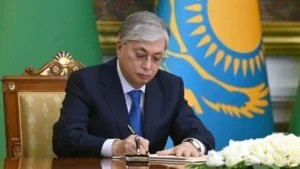Paris: Leading unions call for strikes

Leading unions have called for strikes Tuesday in their biggest challenge yet to President Emmanuel Macron since he won a new presidential term in May.
It will come after workers at several refineries and depots operated by energy giant TotalEnergies voted to extend their strike action, defying the government which has begun to force staff back on the job.
Motorists scrambled to fill tanks as the fuel strike, which has lasted for nearly three weeks, crippled supplies at just over 30 percent of France’s service stations.
The government, increasingly impatient with striking workers, said it was forcing key staff back to work.
“The time for negotiation is over,” Finance Minister Bruno Le Maire told the BFMTV broadcaster on Monday.
The government said it would begin to requisition workers at the Feyzin depot in southeastern France from 2:00 pm (1200 GMT) on Monday, having already employed the same strategy at the Mardyck depot in the north of the country.
Fuel workers voted to continue stoppages at several refineries run by TotalEnergies, the coordinator for the hard-left CGT union Eric Sellini said, rejecting a pay package agreed between the group’s management and mainstream unions.
Three out of seven of the country’s oil refineries and five major fuel depots (out of around 200) are affected, the government said.
Strike action at Esso-ExxonMobil ended at the end of last week at the company’s two French refineries, after a pay deal between management and moderate unions which represent a majority of workers.
A return to normal supply conditions at petrol stations will take at least two weeks after strikes end, the government has warned.
Unions in other industries and the public sector have also announced action to protest against the twin impact of soaring energy prices and overall inflation on the cost of living.
Leftist unions CGT and FO have called for a nationwide strike Tuesday for higher salaries, and against government requisitions of oil installations, threatening to cripple public transport in particular.
Rail operator SNCF will see “severe disruptions” with half of train services cancelled, Transport Minister Clement Beaune said.


